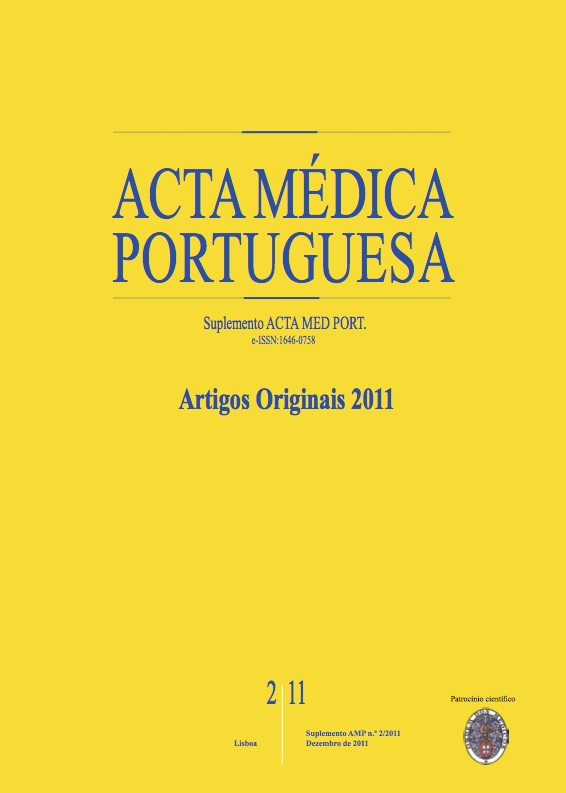Erectile dysfunction of vascular cause: statistical evaluation on the Plurimetabolic Syndrome's risk factors and their correlation with penile eco-doppler rates.
DOI:
https://doi.org/10.20344/amp.1478Resumo
The Plurimetabolic Syndrome is a clustering of vascular risk factors (dyslipemia, abdominal perimeter, HTA and impaired glucose tolerance) with great importance in the development of cardiovascular disease (CVD) and diabetes (DM). CDV and DM are responsible for near 70% of the erectile dysfunction causes. Eco-doppler is the first line exam for the evaluation of cavernous arterial integrity.A epidemiologic retrospective study and statistic evaluation of the risk factors was made from a population of 176 patients who were submitted to penile eco-doppler with a 12 MHz BK ultrasound. The procedure was done with 20 to 40 µg of prostaglandin E1 and by the some investigator. The criteria of ED of arterial origin were the peak systolic velocity (PSV) < 30 cm/seg and the resistance index (IR) < 0,75. For the ED of venous-occlusive origin was the peak diastolic velocity (PDV) > 10 cm/seg with normal PSV. The control group was the patients without risk factors and with normal eco-doppler values.The mean age was 49 (17-77) years old. The vascular diseases were present in 41% of the population. The venous-occlusive correspond to 11% of the diagnosis of vascular diseases and 89% to arterial origin. The PSV and the IR become lower with the age and the PDV has no variation (Spearman correlation coefficient, p < 0,001). The PSV and the IR become lower when the risk factors are present and when there are more than one risk factor (Mann-Whitney test, p < 0,001). The PDV had no variation. We were not able to prove the risk grade of the vascular factors analysed in the PSV and the IR (Kruskal-Wallis test, p = 0,2048).Downloads
Downloads
Como Citar
Edição
Secção
Licença
Todos os artigos publicados na AMP são de acesso aberto e cumprem os requisitos das agências de financiamento ou instituições académicas. Relativamente à utilização por terceiros a AMP rege-se pelos termos da licença Creative Commons ‘Atribuição – Uso Não-Comercial – (CC-BY-NC)’.
É da responsabilidade do autor obter permissão para reproduzir figuras, tabelas, etc., de outras publicações. Após a aceitação de um artigo, os autores serão convidados a preencher uma “Declaração de Responsabilidade Autoral e Partilha de Direitos de Autor “(http://www.actamedicaportuguesa.com/info/AMP-NormasPublicacao.pdf) e a “Declaração de Potenciais Conflitos de Interesse” (http://www.icmje.org/conflicts-of-interest) do ICMJE. Será enviado um e-mail ao autor correspondente, confirmando a receção do manuscrito.
Após a publicação, os autores ficam autorizados a disponibilizar os seus artigos em repositórios das suas instituições de origem, desde que mencionem sempre onde foram publicados e de acordo com a licença Creative Commons









